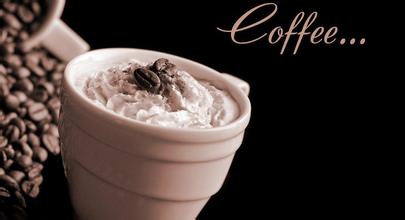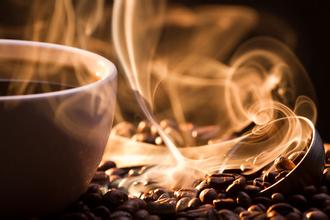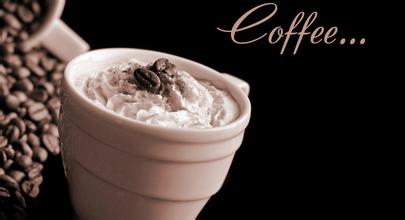Introduction to the producing area of Nicaraguan Fine Coffee Flavor
When tasting Nicaragua coffee, it is best to drink a mouthful of cold water first, so that you can better feel its mellow taste. Drink coffee while it is hot, because tannic acid in Nicaragua coffee is easy to change in the process of cooling, which makes the taste sour and affects the flavor of coffee. You can add sugar and then creamer. Enjoy a cup of high-quality Nicaragua coffee, not only can you experience the different levels of coffee taste, but will also help improve the ability to appreciate coffee.
Nicaragua coffee Flavor characteristics: Moderate acidity, aromatic and delicious.
Nicaragua coffee enjoys a reputation for being one of the best quality coffee beans in the world. It has moderate particle size, mild taste and a strong aroma.
Nicaragua is located in central Central America, bordered by the Pacific Ocean to the west and the Caribbean Sea to the east. North central highlands, coastal plains to the east, is part of the Central American volcanic belt. The eastern plain is hot and rainy, and has a tropical marine climate. Suitable climate provides a good growing environment for coffee cultivation.
High quality Nicaragua coffee, grown in the north and centre of the country. Coffee is Nicaragua's pillar industry, producing nearly a hundred thousand tons of coffee beans every year. Many people who have tasted Nicaragua coffee usually think that it is no different from Salvadoran coffee or Honduran coffee. It is rich aroma, smooth and delicate, slightly bitter finish, as if the wine in the faint flavor.
In many countries coffee production is severely affected for political reasons. The coffee industry in Nicaragua is no exception. The revolution of 1979 forced coffee growers to flee to Miami. A period of uncertainty ensued as the government considered whether to reallocate land, including many plantations, resulting in a shortage of coffee supplies and a decline in production, from more than 1 million bags in the early 1970s to less than 600,000 bags in 1990. Now the government has liberalized the coffee industry and private owners have taken control of the market. The best coffees are produced in Sinotka, Matagalpa, and Nueva Segovia. They are pleasant with moderate acidity and aromatic taste.
Nicaragua| Teacher Wen Nicaragua coffee Nicaragua coffee beans w.kaf.name
Nicaragua is now one of the poorest countries in Central America. Because of its poor economic base, the coffee industry is still in a relatively backward state, while coffee farmers are in an extremely poor state. Fortunately, Nicaragua's coffee has received some foreign aid funds to improve the quality of its coffee. Nicaragua's Madagelba, Chinodega, Segovia region of coffee produced by coffee lovers respected the world. In particular, coffee grown in the Madagerba region tastes very similar to Kenyan AA coffee.
When tasting Nicaragua coffee, it is best to drink a mouthful of cold water first, so that you can better feel its mellow taste. Drink coffee while it is hot, because tannic acid in Nicaragua coffee is easy to change in the process of cooling, which makes the taste sour and affects the flavor of coffee. You can add sugar and then creamer. Enjoy a cup of high-quality Nicaragua coffee, not only can you experience the different levels of coffee taste, but will also help improve the ability to appreciate coffee.
Coffee is Nicaragua's main export product. Nicaragua's total coffee production for the 1998/99 coffee year could be 12 per cent lower than in 1997/98 due to the poor harvest in the Pacific region, according to the president of the Nicaraguan Coffee Farmers Federation. Nicaragua harvested a total of 1.422 million bags (46kg/bag) of coffee in the 1997/98 coffee year, the best harvest since coffee production hovered around 1 million bags for 14 years. Coffee exports are expected to be around 1.5 billion U.S. dollars in 1998. $600 million, Nicaragua coffee production will drop sharply @ Vechele coffee is Nicaragua's main export product. nicaragua's total coffee production for the 1998/99 coffee season may be 12 percent lower than in 1997/98 because of the poor harvest in the pacific region, according to the president of the Nicaragua coffee farmers federation

Important Notice :
前街咖啡 FrontStreet Coffee has moved to new addredd:
FrontStreet Coffee Address: 315,Donghua East Road,GuangZhou
Tel:020 38364473
- Prev

Taste of Cuban Crystal Coffee Flavor Manor introduces the characteristics of Cuban fine crystal coffee
It slightly contains wine-like bitterness and a touch of sweetness, and even a hint of tobacco, meticulous and smooth, fresh and elegant, almost perfect. Known as the noble and elegant princess in coffee. The general taste of coffee is as strong as heavy metal music, while the taste of Cubita is as delicate and balanced as the softness of country minor. It will take you out of the hustle and bustle of the city.
- Next

Brazilian Coffee with mellow Flavor: introduction to Brazilian Fine Coffee
Brazilian coffee generally refers to coffee produced in Brazil. There are many kinds of coffee in Brazil. Like other Arabica coffee, Brazilian coffee is called Brazilian coffee Brazils to distinguish it from Milds coffee. The vast majority of Brazilian coffee is unwashed and sun-dried and is classified according to the name of the state of origin and port of transport. Brazil has 21 states and 17 states produce coffee, but among them
Related
- Detailed explanation of Jadeite planting Land in Panamanian Jadeite Manor introduction to the grading system of Jadeite competitive bidding, Red bid, Green bid and Rose Summer
- Story of Coffee planting in Brenka region of Costa Rica Stonehenge Manor anaerobic heavy honey treatment of flavor mouth
- What's on the barrel of Blue Mountain Coffee beans?
- Can American coffee also pull flowers? How to use hot American style to pull out a good-looking pattern?
- Can you make a cold extract with coffee beans? What is the right proportion for cold-extracted coffee formula?
- Indonesian PWN Gold Mandrine Coffee Origin Features Flavor How to Chong? Mandolin coffee is American.
- A brief introduction to the flavor characteristics of Brazilian yellow bourbon coffee beans
- What is the effect of different water quality on the flavor of cold-extracted coffee? What kind of water is best for brewing coffee?
- Why do you think of Rose Summer whenever you mention Panamanian coffee?
- Introduction to the characteristics of authentic blue mountain coffee bean producing areas? What is the CIB Coffee Authority in Jamaica?

